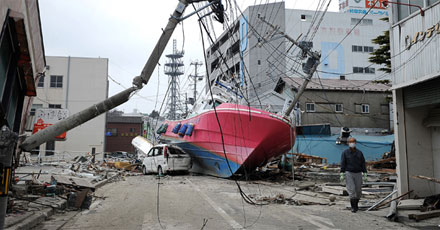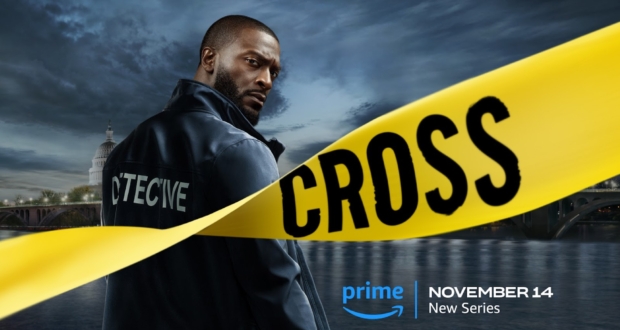
No, not literally. So far the West Coast has been spared any real dramatic physical side effects. But that doesn’t mean Hollywood is immune to the financial side effects of this disaster. Aside from the havok of the Japan Tsunami literally destroying buildings and limiting power that has shut down many theaters, Hollywood is struggling to re-organize its business in the wake of Japan’s lack of entertainment industry.
“Everybody is going to look at their lineup for the rest of the year,” one studio distributor says. “Once you start moving films back, you are going to pinch other movies. Sequencing will become very tricky.
“It’s an hour-by-hour, day-by-day situation,” the exec adds. “If these nuclear reactors actually do have a big problem, it’s a whole different ballgame.”The most immediate concern is pulling films that might appear insensitive to the tragedy, like Clint Eastwood’s Hereafter, which begins with a chilling re-creation of the deadly 2004 tsunami in Thailand. Warner Bros. yanked Hereafter from theaters almost immediately after the 9.0 earthquake struck March 11. Likewise, Japanese distributor Shochiku has canceled the March 26 opening of Chinese box office hit Aftershock, about China’s massive 1976 Tangshan earthquake.
While sci-fi action pic Battle: Los Angeles isn’t a disaster movie per se, Sony is canceling the alien-invasion pic’s April 1 debut in Japan because of the images of mass destruction.
The Japanese box office has become very important to Hollywood, representing 10 percent of all international ticket sales and generating more than $2.5 billion in revenue in 2010.
I anticipated a lot of economical impact on the rest of the world as Japan deals with more pressing matters.
Theaters saw a 60-70% drop in attendance in Japans 3000 cinemas. Stock markets are dropping on Japanese entertainment companies. Entertainment is the least of their worries right now.
“People don’t feel it’s appropriate, emotionally or otherwise, to be entertained when your country is going through a tragic situation,” NATO president and CEO John Fithian says. “But at some point, the need to escape comes back.”
















